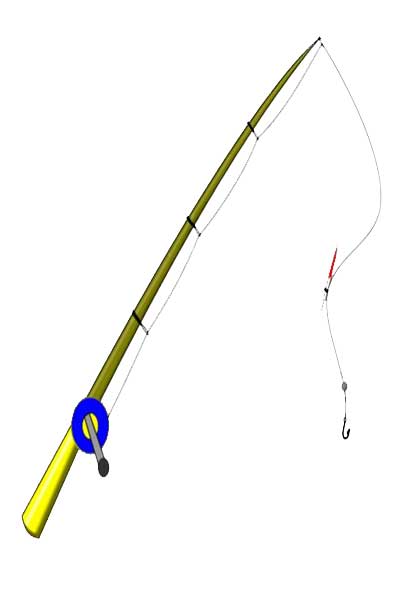Fishing is an ancient practice that has evolved dramatically over time, yet its core essence remains unchanged. When discussing fishing equipment, one term consistently surfaces: "fishing rod." This article delves into the fishing rod meaning in English, exploring its importance, applications, and various types.
The Definition of a Fishing Rod

A fishing rod is a long, flexible tool that anglers use to catch fish. It acts as a lever that helps cast bait or lures into the water, allowing fishermen to reel in their catch with precision and ease. Understanding the fishing rod meaning in English goes beyond mere definition; it encompasses the rich culture and technique associated with fishing.
The Anatomy of a Fishing Rod
To comprehend the full scope of what a fishing rod entails, it's essential to examine its anatomy:
- Rod Blank: The main body of the rod, typically made from materials like fiberglass, graphite, or composite. Its flexibility determines the rod's action.
- Reel Seat: A fitted area that holds the reel securely in place. It's crucial for stability during casting and retrieving.
- Guides: Small rings along the rod that guide the fishing line. They help reduce friction and allow smooth line movement.
- Handle: The portion where the angler grips the rod. It’s designed for comfort and control, often wrapped in cork or foam.
Historical Context of Fishing Rods
The fishing rod has undergone significant transformation throughout history. Originally crafted from natural materials such as bamboo or wood, modern rods now utilize advanced materials to enhance performance. The evolution of fishing rods reflects both technological advancements and changing fishing practices.
Variations in Fishing Rod Types
Different fishing environments require different tools. Thus, various types of fishing rods have emerged, each with distinct characteristics:
- Spinning Rods: Designed for versatility, these rods are ideal for catching a wide range of fish species.
- Casting Rods: These rods offer greater accuracy and control, making them perfect for targeting specific fish.
- Fly Rods: Specifically crafted for fly fishing, these rods are lightweight and flexible, enabling delicate casting.
- Telescopic Rods: Compact and portable, telescopic rods are perfect for travel and spontaneous fishing trips.
Understanding Fishing Techniques with Fishing Rods

Grasping the fishing rod meaning in English also involves understanding how to use it effectively within various fishing techniques.
Casting Techniques
Casting is fundamental to fishing. Here are some primary casting techniques:
- Overhead Cast: The most common technique, it involves swinging the rod behind the shoulder and then forward to launch the line.
- Sidearm Cast: This technique is useful for short casts or when fishing in tight spaces, utilizing a horizontal swing.
- Roll Cast: Essential in fly fishing, this method allows the angler to present the fly delicately on the water surface.
Retrieving Techniques
Once the bait is cast, various retrieval techniques come into play, including:
- Straight Retrieve: The basic technique where the angler reels in the line steadily, mimicking the movement of prey.
- Stop-and-Go: By pausing intermittently, this method can entice fish by creating a more lifelike presentation.
- Jerk Retrieve: Involves quick, erratic pulls of the rod tip to mimic injured prey, ideal for aggressive fish species.
Baiting Techniques
Choosing the right bait is crucial to successful fishing. Various methods include:
- Live Bait: Using actual worms or minnows can attract a broader range of fish.
- Artificial Lures: Mimicking the appearance and movement of fish, lures can be highly effective when used correctly.
- Flies: For fly fishing, specially crafted flies imitate insects or small aquatic creatures.
Choosing the Right Fishing Rod

Selecting the appropriate fishing rod is paramount to a successful fishing experience. Here’s how to approach the decision-making process.
Assessing Fishing Goals
Before purchasing a fishing rod, consider your fishing goals:
- Target Species: Different species require different tackle; larger fish may need sturdier rods.
- Fishing Environment: Freshwater vs. saltwater demands varied rod functionalities and materials.
Understanding Rod Power and Action
When evaluating fishing rods, two key terms arise: power and action.
- Power: Refers to the rod's strength and ability to handle weight. Common classifications include ultralight, light, medium, and heavy.
- Action: Describes how the rod bends during use. Fast action rods bend near the tip, while slow action rods flex more throughout their length.
Exploring Budget Options
Fishing rods come in various price ranges, so explore options within your budget. Factors to consider include material quality, brand reputation, and warranty.
Maintenance and Care of Fishing Rods

A well-maintained fishing rod will last longer and perform better. Here are some key maintenance tips.
Cleaning Your Fishing Rod
Regular cleaning is essential to preserve the integrity of your fishing rod. After each fishing trip, wipe down the rod and guides to remove dirt and salt.
Proper Storage Techniques
Storing your fishing rod correctly can prevent damage:
- Horizontal Storage: Lay the rod flat in a rod rack to avoid warping.
- Vertical Storage: Use vertical rod holders which keep rods organized and positioned safely.
Regular Inspections
Periodically inspect your fishing rod for signs of wear or damage:
- Check Guides: Look for cracks or obstructions in the guides that could hinder line movement.
- Inspect Reel Seat: Ensure the reel is securely attached and that there are no damages around the seat.
The Cultural Significance of Fishing Rods

Fishing isn't just about catching fish; it’s deeply rooted in culture and tradition. Understanding the fishing rod meaning in English extends to its social implications.
Fishing as a Recreational Activity
For many, fishing serves as a relaxing pastime, providing an escape from the hustle and bustle of daily life. It fosters connections with nature and offers an opportunity for personal reflection.
Family Traditions
Fishing rods often symbolize bonding experiences among families. Many individuals cherish memories of fishing trips passed down through generations, reinforcing familial ties and traditions.
Competitions and Tournaments
Fishing competitions highlight the sport's competitive aspect. Anglers showcase their skills using varying fishing rods, with tournaments offering prizes and recognition for expertise.
FAQs About Fishing Rod Meaning in English
What is the fishing rod meaning in English?
The fishing rod refers to a long, flexible tool used by anglers to catch fish, consisting of several parts like the rod blank, reel seat, guides, and handle.
How do I choose the right fishing rod for my needs?
Consider your target fish species, fishing environment, and whether you prefer spinning or casting techniques. Evaluate rod power and action to match your fishing style.
Can I use the same fishing rod for freshwater and saltwater fishing?
While it’s possible, specialized rods exist for each environment. Saltwater rods are generally made from corrosion-resistant materials and are often more robust due to larger fish sizes.
How do I maintain my fishing rod?
Clean your rod after each use, store it properly, and conduct regular inspections to look for any damage or wear.
Why is fishing considered a cultural activity?
Fishing transcends mere sport; it creates shared experiences, enhances family bonds, provides relaxation, and can be integral to community traditions.
Conclusion
Understanding the fishing rod meaning in English goes beyond its definition; it encompasses the art of fishing, the technicalities of various rods, and the rich traditions entwined within this timeless practice. Whether you're a beginner or a seasoned angler, the fishing rod is your essential companion in the pursuit of fish, adventure, and connection with nature. Embrace the journey and deepen your appreciation for this remarkable tool, as it not only serves a functional purpose but also carries the weight of cherished memories and cultural significance.



0 Comments